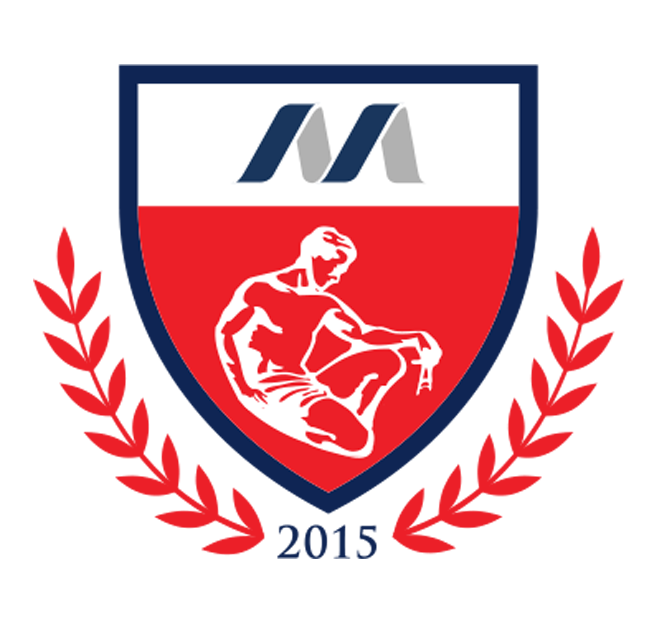Accountancy Program

About BS Accountancy
This program prepares students for becoming a certified public accountant while also providing training for other certifications such as CMA, CIMA, and CFA. Students will gain exposure to various industries to create a well-rounded education, and faculty will teach them about financial behaviors across different business sectors to prepare them for real-world accounting work. Graduates can expect to become accountants or controllers in different companies or start their own accounting services firm.
Bachelor of Science in Accountancy
- The program primarily prepares the student to be a certified public accountant. Besides that, they will also be given sufficient training to be prepared for other certifications and charters such as CMA, CIMA, CFA and the like.
- The students will be exposed to a variety of industries and sectors in order to create a holistic educational environment. They will be exposed by our faculty to the varying financial behaviors of different business sectors in order to prepare them for actual accounting work.
- The graduates of this program are expected to be accountants and controllers of various companies. They may also engage in private practice or manage their own accounting services firm.
Program Table Summary
- 2019-2020
- B.S. Accountancy
- Total Number of Units and breakdown
| Course Classification | Total Number of Units |
|---|---|
| General Education | 36 |
| NSTP | 6 |
| Physical Education | 8 |
| Common Business and Management Education Courses | 6 |
| Accounting Core Courses | 81 |
| Professional Courses | 24 |
| Professional Elective | 12 |
| MapúaMCM Required Courses | 36 |
| Total | 209 |
- Expected number of years to complete the program – 4 years
- Graduates of Non-ABM (e.g. STEM, HUMSS, GAS) will be required to take a 15 unit bridging program
Program Education Objectives
- Have sufficient professional and technical skills through continuing professional development programs to resolve business issues and problems, with the global perspective and particular emphasis on matters confronting financial statement preparers and users.
- Be engaged in employing technology and research as business tools in capturing financial and non-financial information, generating reports, and making decisions.
- Be committed to good corporate citizenship, social responsibility, and ethical practice in performing functions as an accountant.
Student Outcomes
A graduate of BS Accountancy should be able to:
- Pass licensure examinations or qualify for related professional accreditations / certifications.
- Conduct financial and operational audits of all types of business enterprise and not-for profit organization.
- Prepare individual and corporate income tax returns and conduct basic tax planning in compliance with relevant legislations and regulations.
- Perform cost-benefit analysis and effectively communicate the results for sound management decisions.
- Identify and describe the basic concepts that underlie each of functional areas of business (marketing, finance, human resources, production and operations, information technology and strategic management) and employ these concepts in various business situations.
- Apply information and communication technology (ICT) skills as required by the business environment.
- Express clearly and communicate effectively with stakeholders both in oral and written forms.
- Customize an accounting software to a particular business entity.
- Prepare reports such as budgets and business plans using appropriate framework.
- Analyse the performance of a particular business entity using appropriate accounting software tools and functions.
- Conduct accountancy research through independent studies of relevant literature and appropriate use of accounting theory and methodologies.
- Organize and lead to plan and implement business related activities that are helpful to community.
- Work effectively with other stakeholders and manage conflict in the workplace.
- Exercise high personal moral and ethical standards.
List of Courses
| ACCOUNTANCY CORE COURSES – Provides the students with the core technical foundation essential to a successful career as a professional accountant. Gives the students theoretical and technical accounting knowledge and skills, including an understanding of professional values and ethics. | ||
|---|---|---|
| LAW101 | LAW ON OBLIGATIONS AND CONTRACTS | |
| LAW102-9 | BUSINESS LAW AND REGULATIONS | |
| LAW103 | REGULATORY FRAMEWORK AND LEGAL ISSUES IN BUSINESS | |
| MGT120 | MANAGEMENT SCIENCE | |
| ECO102 | INTERNATIONAL BUSINESS AND TRADE | |
| ACT210 | ACCOUNTING RESEARCH METHODS | |
| ACT200 | ACCOUNTING INTERNSHIP | |
| ACT211 | ACCOUNTANCY RESEARCH | |
| MATH112 | STATISTICAL ANALYSIS WITH SOFTWARE APPLICATION | |
| ACT105 | GOVERNANCE, BUSINESS ETHICS, RISK MANAGEMENT AND INTERNAL CONTROL | |
| ECO103 | MANAGERIAL ECONOMICS | |
| ECO107 | ECONOMIC DEVELOPMENT | |
| ACT103 | FINANCIAL ACCOUNTING AND REPORTING | |
| ACT104 | CONCEPTUAL FRAMEWORK AND ACCOUNTING STANDARDS | |
| ACT110 | INTERMEDIATE ACCOUNTING 1 | |
| ACT111 | INTERMEDIATE ACCOUNTING 2 | |
| ACT112 | INTERMEDIATE ACCOUNTING 3 | |
| FIN103 | FINANCIAL MARKETS | |
| FIN102 | FINANCIAL MANAGEMENT | |
| ACT130 | ACCOUNTING INFORMATION SYSTEM | |
| IT121-9 | IT APPLICATION TOOLS IN BUSINESS | |
| ACT121 | COST ACCOUNTING AND CONTROL | |
| ACT122 | STRATEGIC COST MANAGEMENT | |
| ACT180 | STRATEGIC BUSINESS ANALYSIS | |
| TAX101 | INCOME TAXATION | |
| TAX102 | BUSINESS AND TRANSFER TAXES | |
| PROFESSIONAL COURSES – These courses complement the technical competencies of business and management education, accounting education courses and the intellectual, interpersonal, communication, organizational and management skills in general education. | ||
| ACT150 | AUDITING AND ASSURANCE PRINCIPLES | |
| ACT151 | AUDITING AND ASSURANCE: CONCEPTS AND APPLICATIONS 1 | |
| ACT152 | AUDITING AND ASSURANCE: CONCEPTS AND APPLICATIONS 2 | |
| ACT153 | AUDITING AND ASSURANCE: SPECIALIZED INDUSTRIES | |
| ACT154 | AUDITING IN A CIS ENVIRONMENT | |
| ACT155 | ACCOUNTING FOR SPECIAL TRANSACTIONS | |
| ACT156 | ACCOUNTING FOR BUSINESS COMBINATIONS | |
| ACT157 | ACCOUNTING FOR GOVERNMENT AND NON-PROFIT ORGANIZATIONS | |
| PROFESSIONAL ELECTIVES – These are the courses that a student may select from. These may lead to a certain focus in the Accounting profession. | ||
| ACT103-B | UPDATES IN FINANCIAL REPORTING STANDARDS | |
| MGT106 | HUMAN BEHAVIOR IN ORGANIZATIONS | |
| ACT158 | OPERATIONS AUDITING | |
| ACT107 | VALUATION CONCEPTS AND METHODS | |
| ACT190 | PRINCIPLES AND METHODS IN TEACHING ACCOUNTING | |

